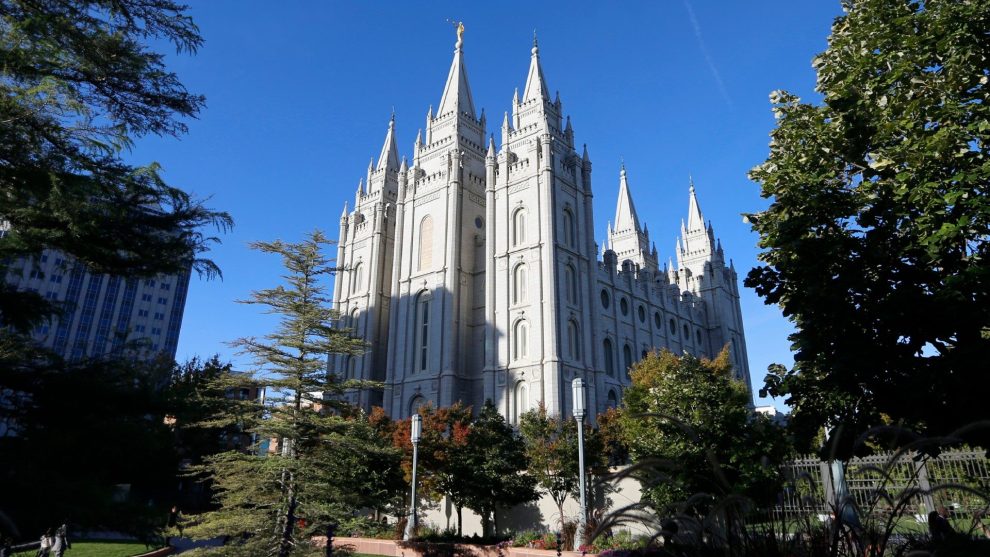
Rick Bowmer/AP
In 1999, John Goodrich, an Idaho dentist who was also a bishop with the Mormon church, accompanied his teenage daughter Chelsea on a school field trip to the East Coast. During a stay in colonial Williamsburg, Virginia, he allegedly abused her sexually, as she later claimed he had done since she was at least nine.
Nearly a quarter-century later, Goodrich—whose story was at the center of an Associated Press/Reveal radio collaboration about how the Church of Jesus Christ of Latter-day Saints protects itself from sexual abuse allegations—has been arrested in Virginia following a grand jury indictment on multiple felony charges, including forcible rape, forcible sodomy, and aggravated sexual battery by a parent of a child. The indictment came in January, weeks after AP investigative reporters Jason Dearen and Michael Rezendes exposed how the Mormon church used a legal playbook to keep accusations against Goodrich secret, despite numerous recordings and witnesses supporting the allegations. Goodrich has been accused of similar abuse in Idaho.
“Chelsea and her mother, Lorraine, went to Idaho police in 2016 to report wide-ranging allegations of abuse during her childhood,” Dearen and Rezendes write. Those charges were eventually dropped after a key witness in the case, another Mormon bishop to whom John had made a spiritual confession about him and his daughter, refused to testify. While the details of that confession have not been made public, the church excommunicated Goodrich.
John Goodrich’s defense lawyer declined to comment.
The AP/Reveal episode, which first aired in December, drew on hours of audio recordings of Chelsea Goodrich’s meetings with Paul Rytting, a Utah attorney who directs the church’s risk management division. The recordings show how Rytting, despite expressing concern for what he called John Goodrich’s “significant sexual transgression,” discouraged the local bishop to whom John Goodrich confessed from testifying. Rytting cited Idaho’s clergy-penitent privilege that exempts clergy from having to divulge information to authorities that is gleaned in a spiritual confession.
As the AP reports:
Invoking the clergy privilege was just one facet of the risk management playbook that Rytting employed in the Goodrich matter. Rytting offered Chelsea and her mother $300,000 in exchange for a confidentiality agreement and a pledge to destroy their recordings of their meetings, which they had made at the recommendation of an attorney and with Rytting’s knowledge. The AP obtained similar recordings that were made by a church member at the time who attended the meetings as Chelsea’s advocate.
In a statement in December, a church spokesperson told the AP and Reveal that “the abuse of a child or any other individual is inexcusable.” The church said it dedicates “tremendous resources” to preventing and reporting abuse and noted that John Goodrich, following his excommunication, “has not been readmitted to church membership.”
Lawmakers in Utah, where the Mormon church is headquartered, recently passed a bill that provides legal protections to clergy if they notify authorities of ongoing child abuse based on information obtained from a perpetrator during a confession. The measure extends to clergy the same legal protections that exist for mandatory reporters of child abuse and neglect, such as doctors, teachers, or therapists. However, religious leaders who report abuse still will not be required to testify.
“I hope this case will finally bring justice for my childhood sexual abuse,” Chelsea Goodrich, now in her 30s, said in a statement to the AP. “I’m grateful it appears that the Commonwealth of Virginia is taking one event of child sexual assault more seriously than years of repeated assaults were treated in Idaho.”












